Lithuania: Land of Hope, Mercy and Living Faith
In the XIII edition of the IWRT – International Workshops on Religious Tourism, Lithuania presents itself as the guest destination. This choice highlights the country as a global reference in religious tourism, spirituality, and faith heritage. With a history marked by resilience, devotion and symbols that transcend generations, Lithuania invites pilgrims and spiritual travelers to discover a land where faith blends with landscape, culture, and the identity of its people.
“A country with great religious traditions” – this is how Pope John Paul II described this northern European nation on the shores of the Baltic Sea during his visit. Known for its authentic culture, rich natural landscapes, wellness offerings and gastronomic experiences, Lithuania proudly shares its religious heritage and spiritual traditions with the world.
From Šiluva – one of the earliest globally recognised sites of a Marian apparition – to the unique Hill of Crosses and the capital Vilnius, known as the City of Mercy, Lithuania offers a wealth of sacred places that continue to attract pilgrims.
Lithuania’s participation as the guest destination of the XIII edition of the IWRT highlights a unique opportunity to showcase, in greater depth, its spiritual, cultural, and religious heritage to professionals and stakeholders in the sector. With a legacy shaped by faith, resilience, and the devotion of its people, Lithuania stands out as an inspiring destination for religious tourism.
In this context, all participants are warmly invited to attend the Opening Session and Conference of the event, which will feature a dedicated space celebrating Lithuania.
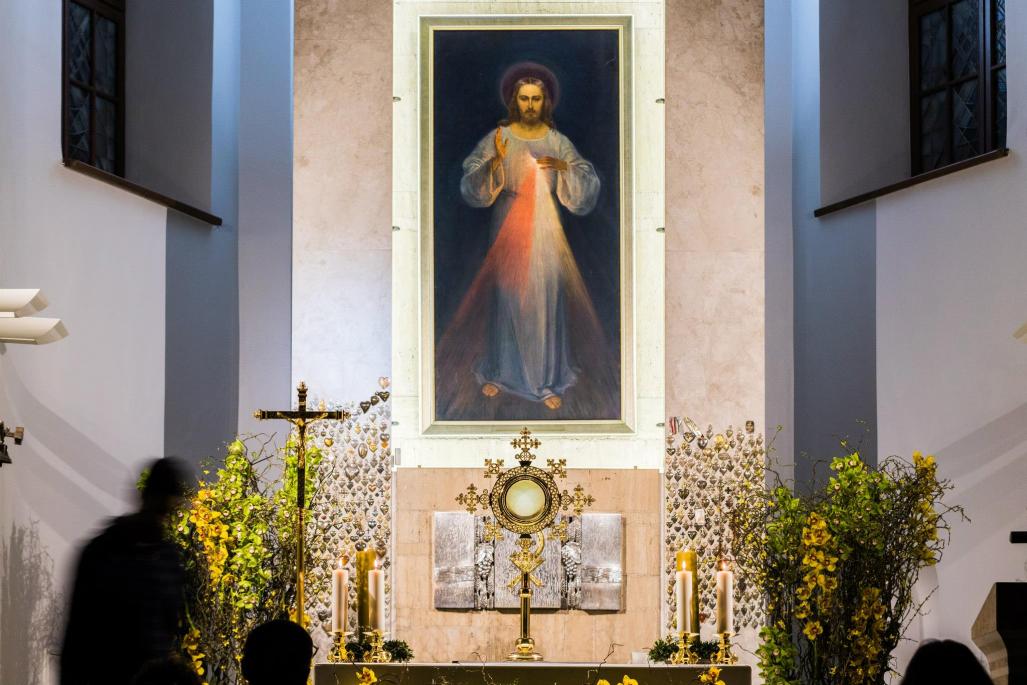 Vilnius Divine Mercy Shrine - Photo by Evaldas Lasys
Vilnius Divine Mercy Shrine - Photo by Evaldas Lasys
Lithuania in photos
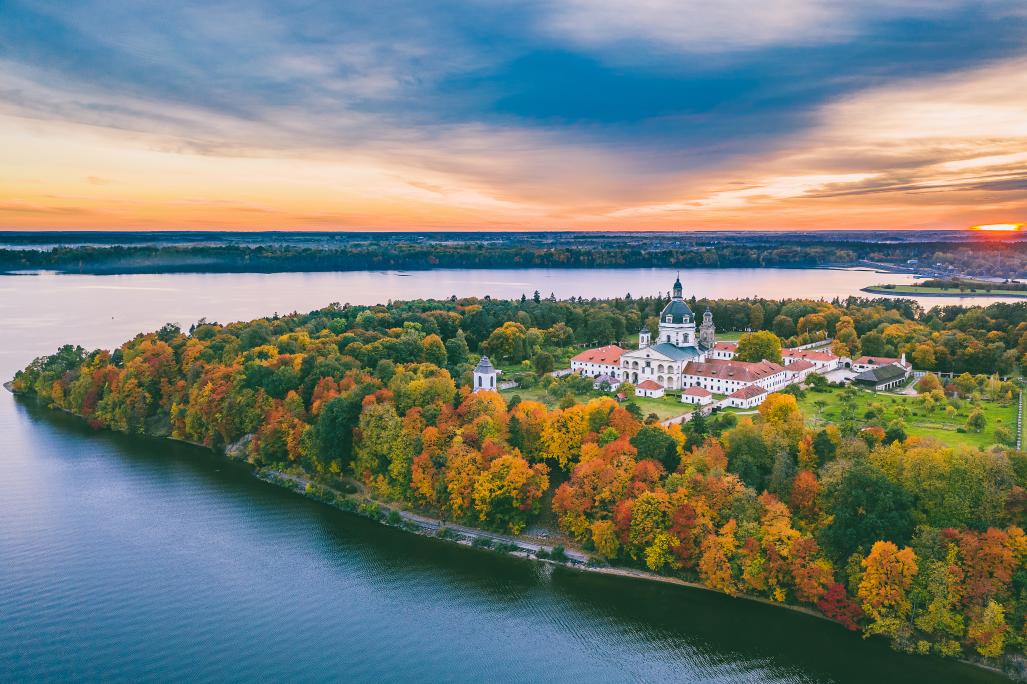
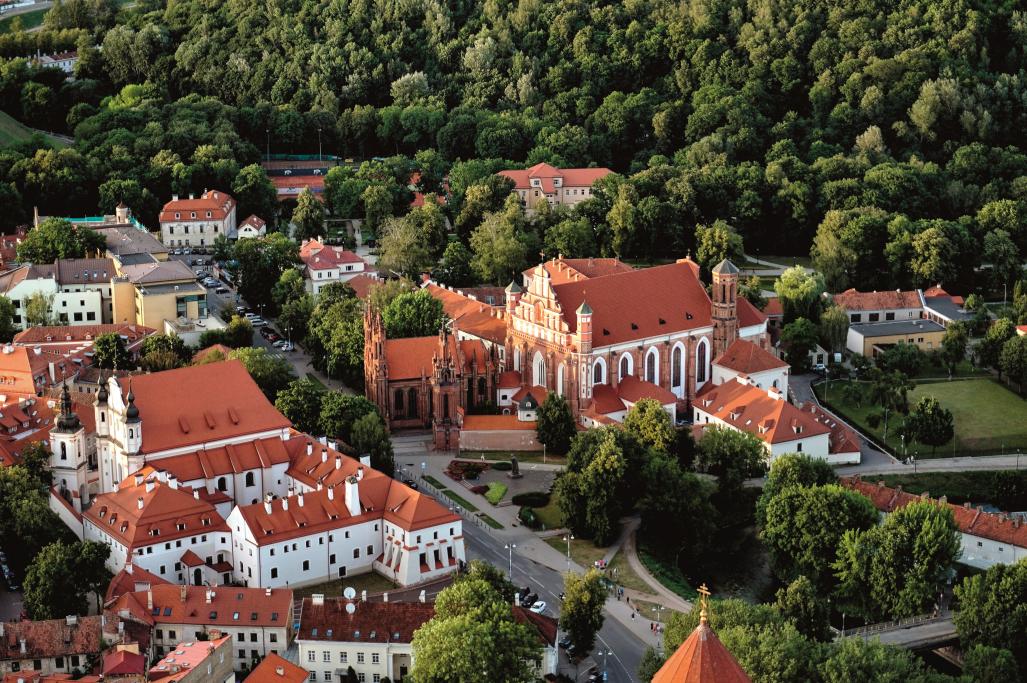
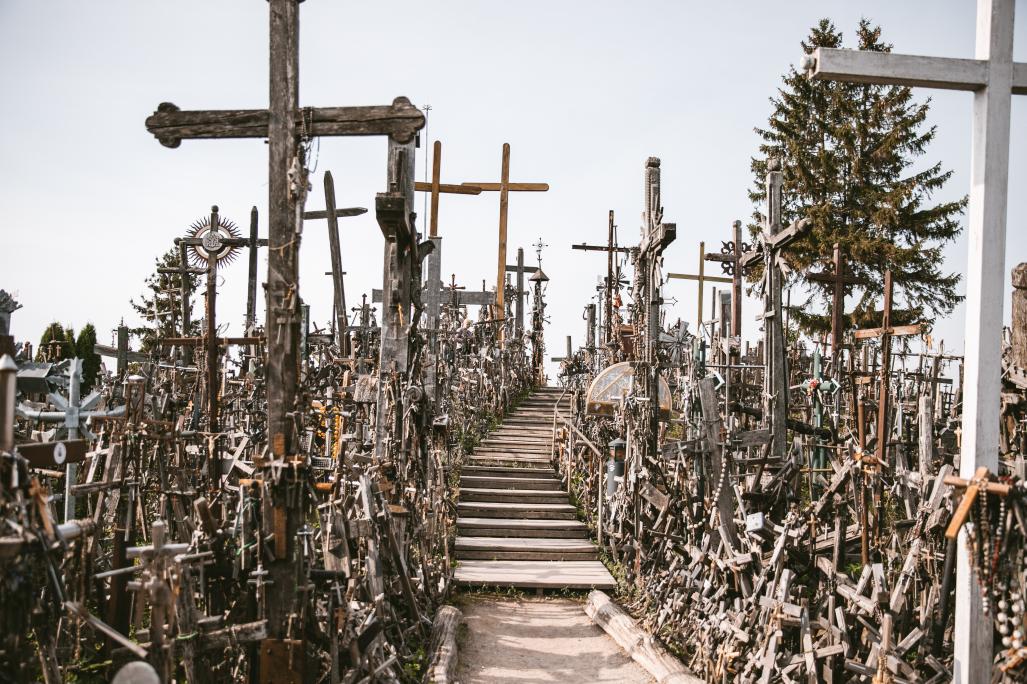
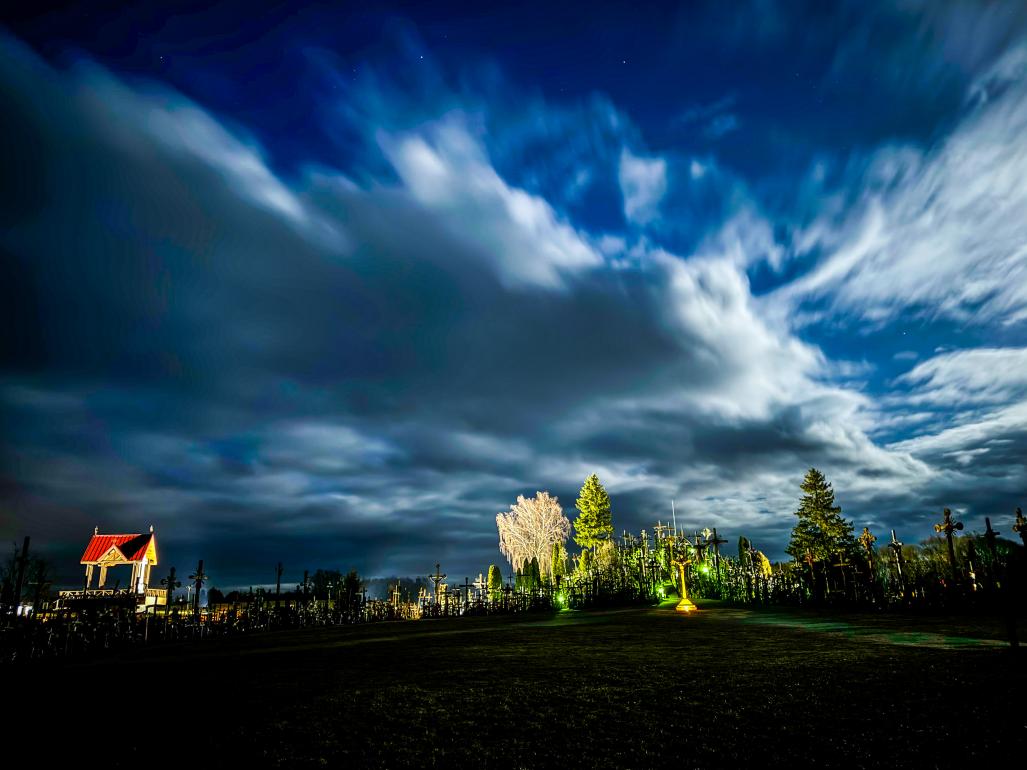
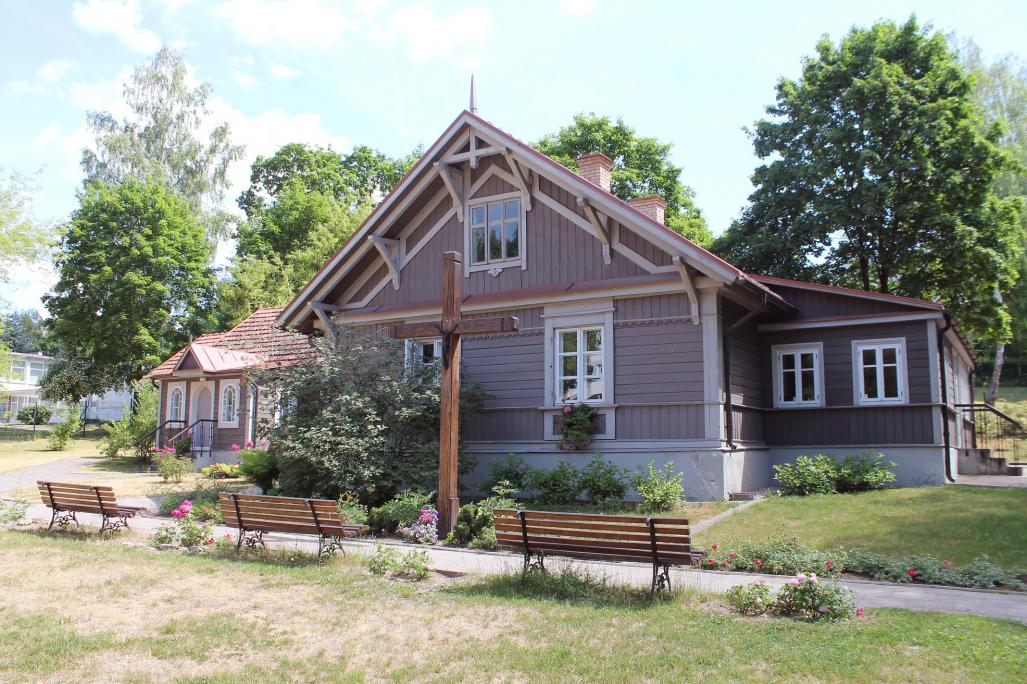
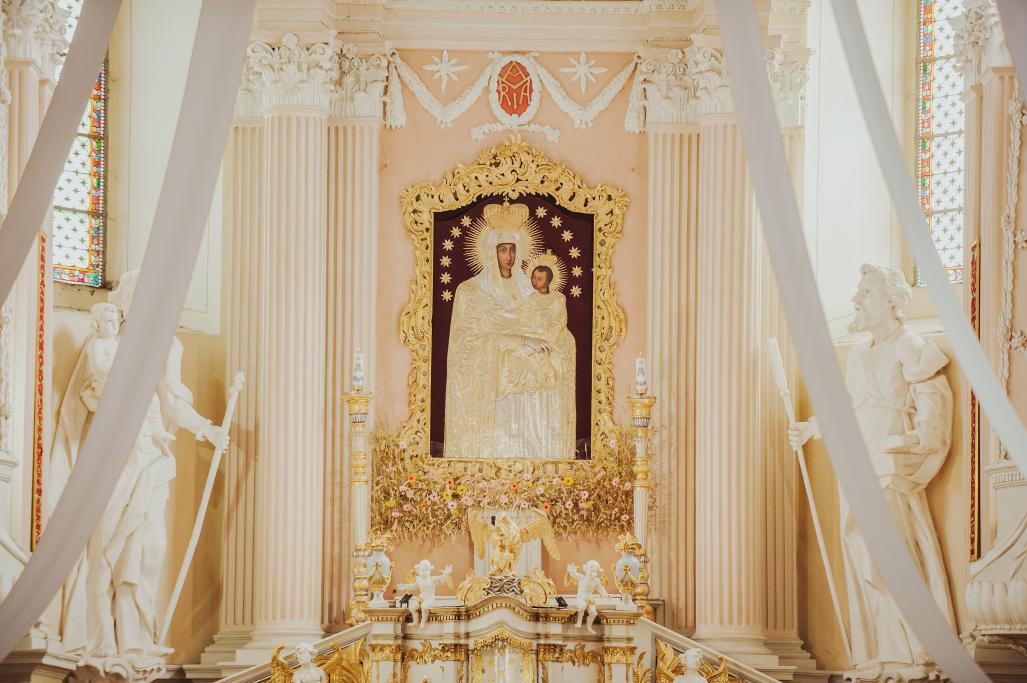

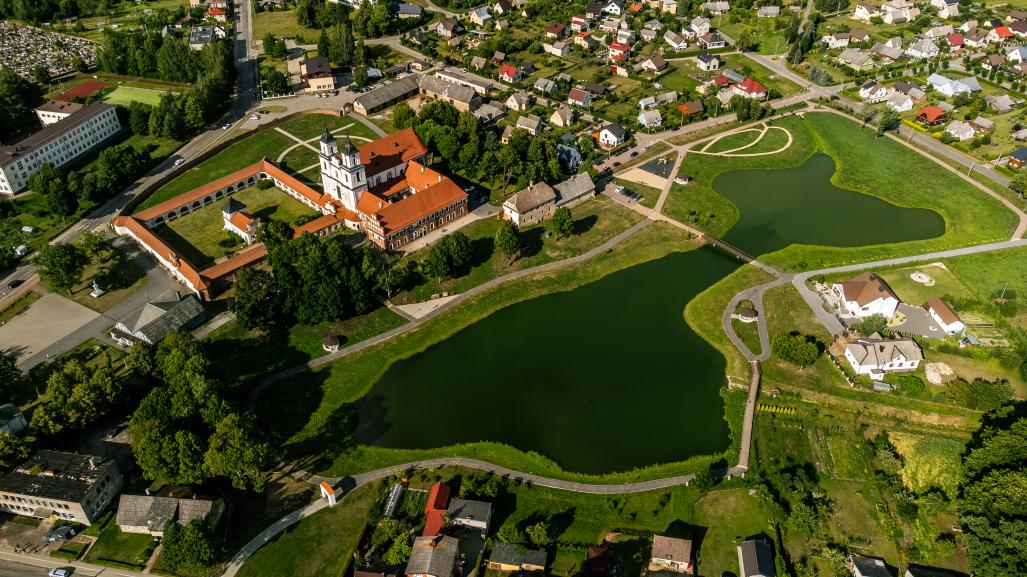
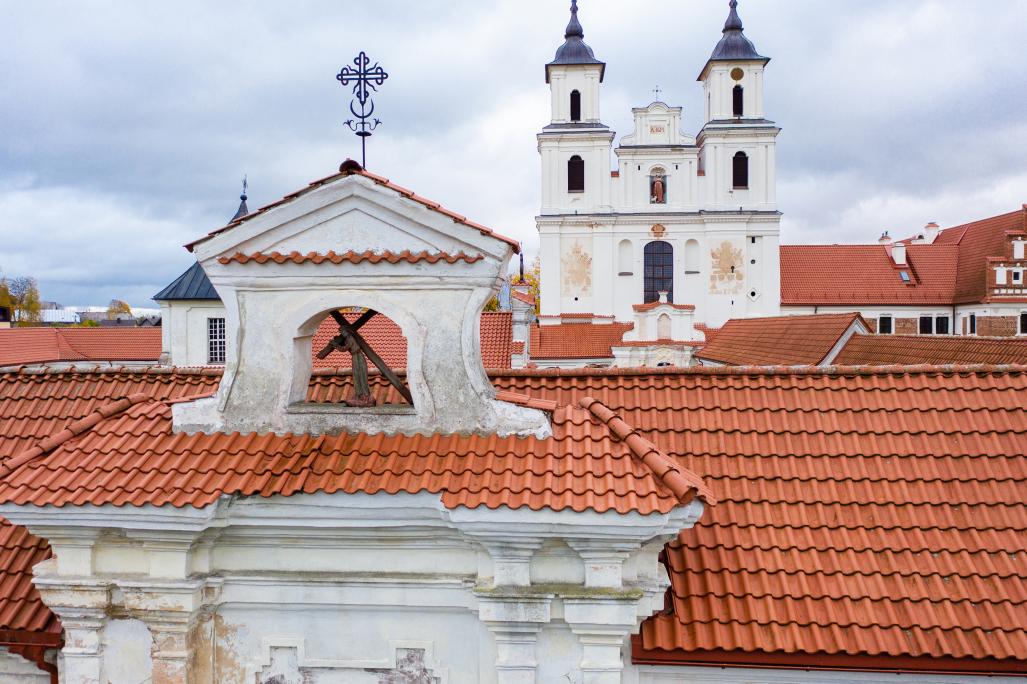
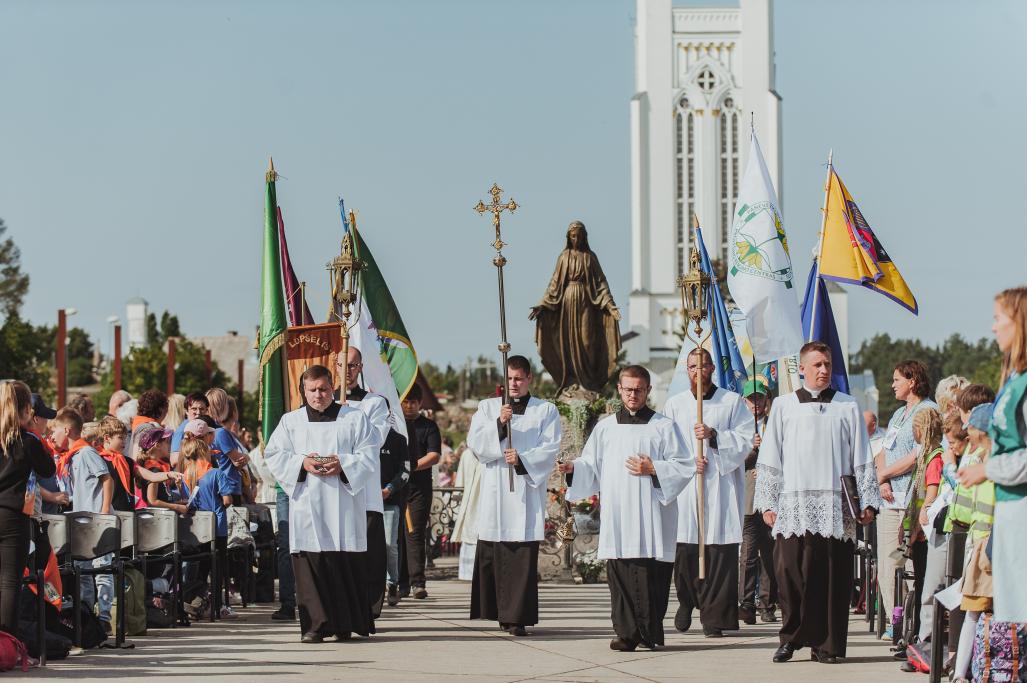
Where Faith Tradition shapes the Land
The history of Catholicism as Lithuania’s official religion dates back to the country’s baptism in 1387 – making it the last nation in Europe to be officially baptized. Despite this relatively late conversion, the power of faith has shaped the national identity of this land for centuries. Today, Lithuania is home to one of the earliest recognized sites of a Marian apparition in the world, while its capital, Vilnius, became the home of the first Image of Divine Mercy and the city from which the message of mercy began to spread.
Multi-layered religious heritage of Lithuania includes both – official Church traditions, reflected in hundreds of churches and monasteries representing various architectural styles (Gothic, Baroque, Renaissance, and others), and folk forms of religiosity, such as wooden chapels and crosses. The latter are part of Lithuania’s unique tradition of cross-crafting, which has been inscribed on UNESCO’s List of the Intangible Cultural Heritage of Humanity.
Thanks to the faith of Lithuanian believers, these sacred symbols and sites continue to tell stories that foster spiritual growth and empower all who visit.
Lithuania’s deep historical roots, multicultural richness, and enduring spiritual traditions make it an exceptional destination for those seeking meaningful religious experiences.
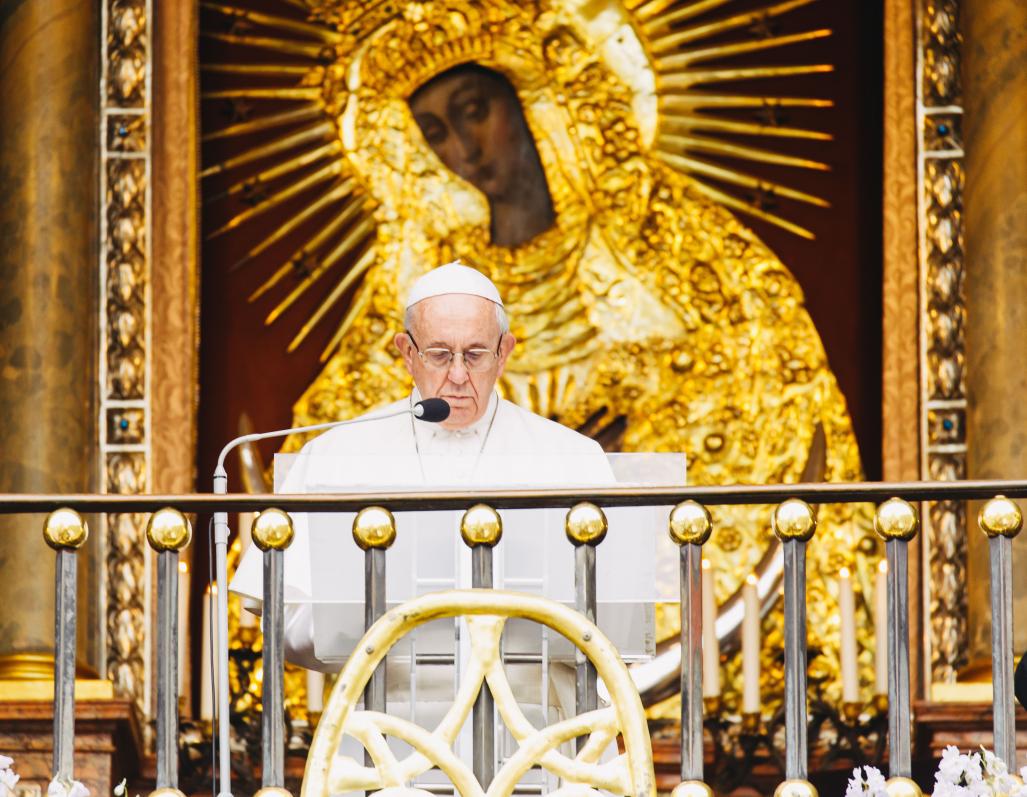 Pope Francis in Gate of Dawn © Fotógrafa Laima Penek 2018-09-22
Pope Francis in Gate of Dawn © Fotógrafa Laima Penek 2018-09-22


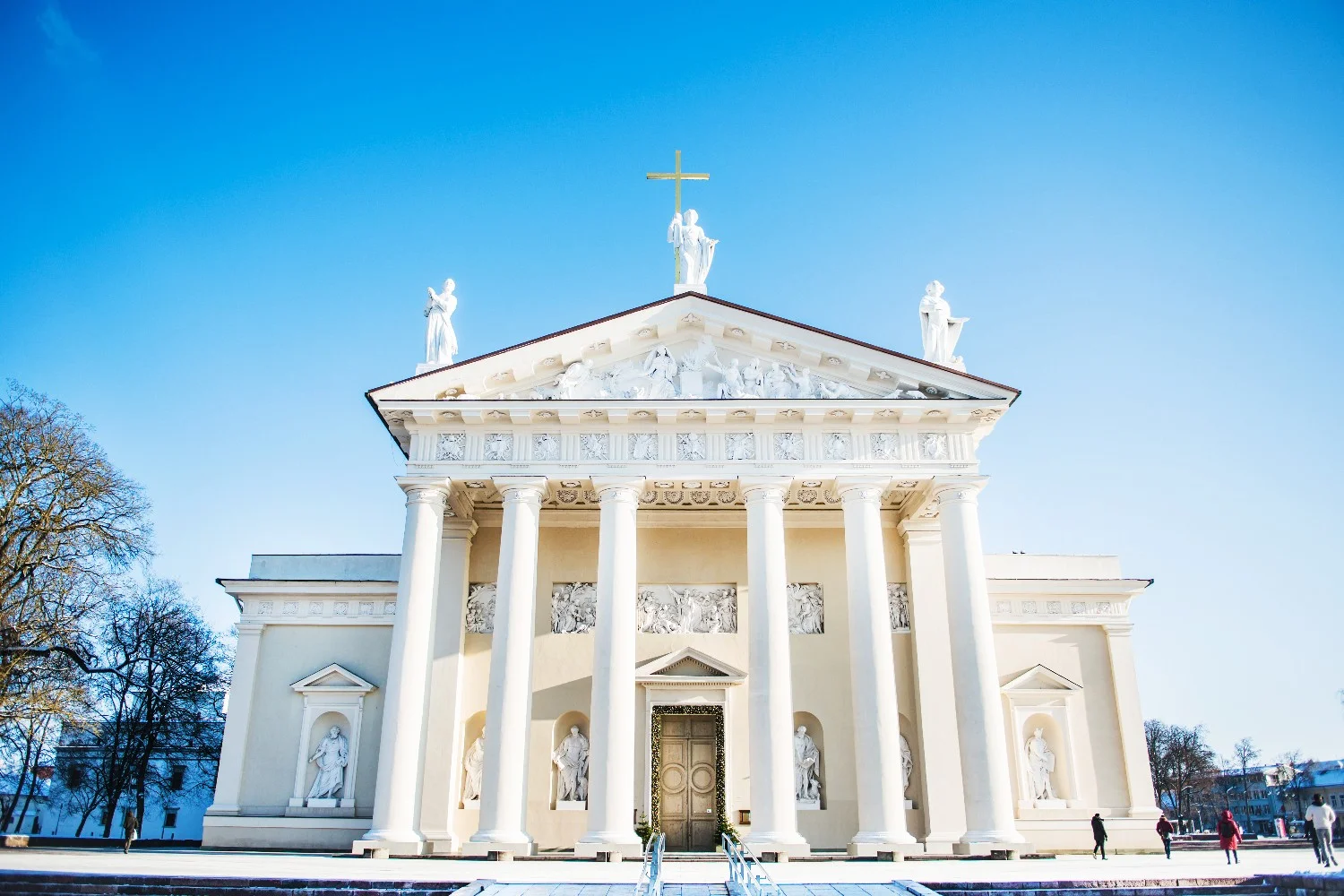
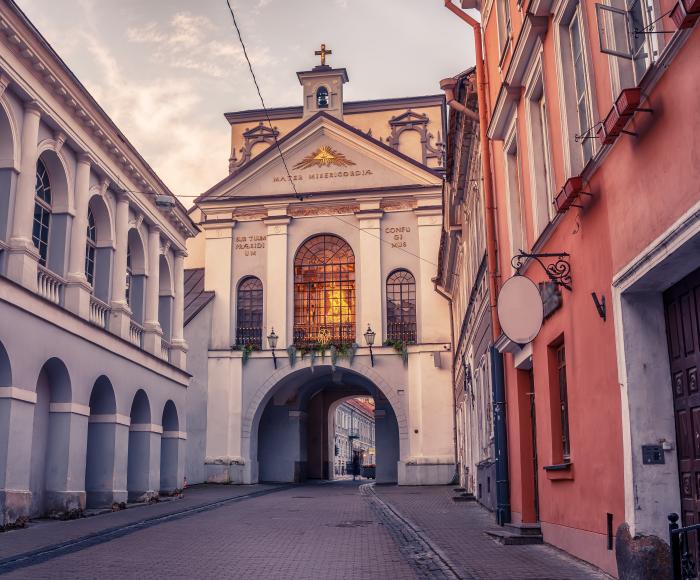
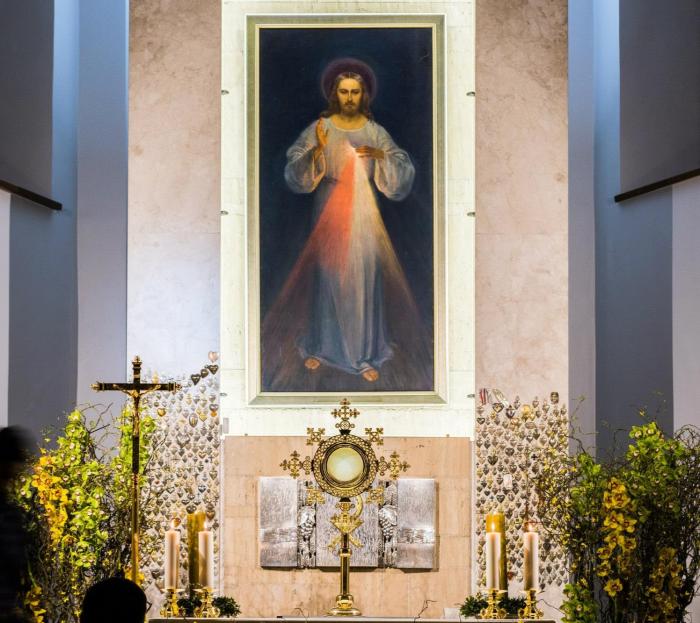
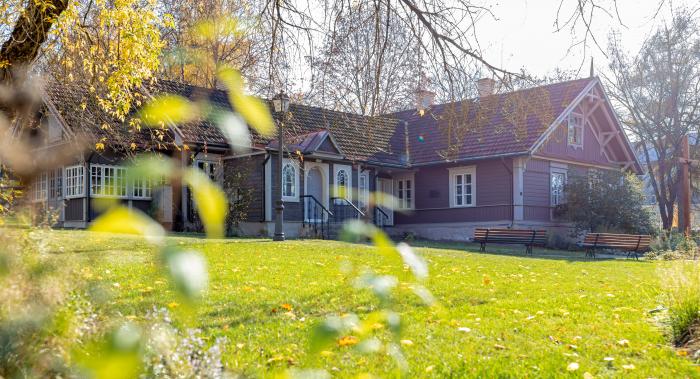
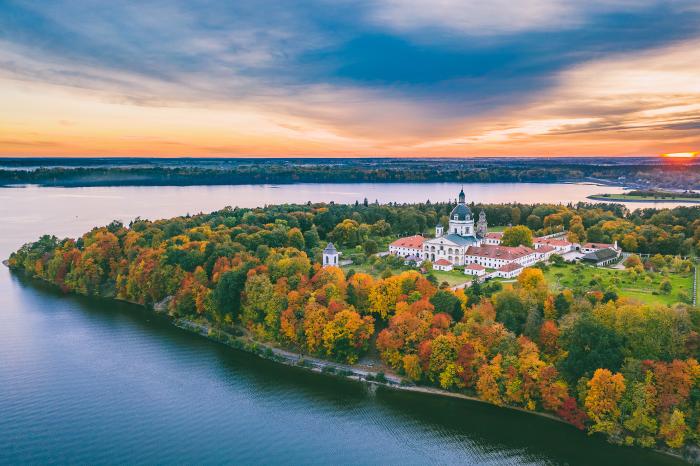
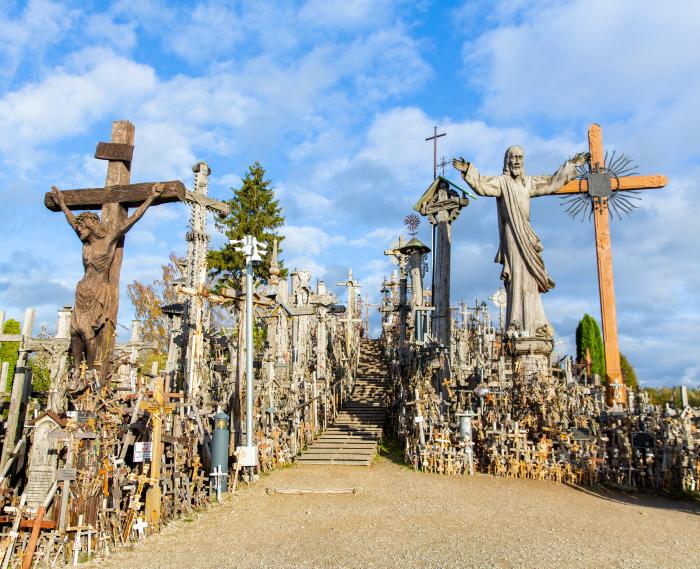
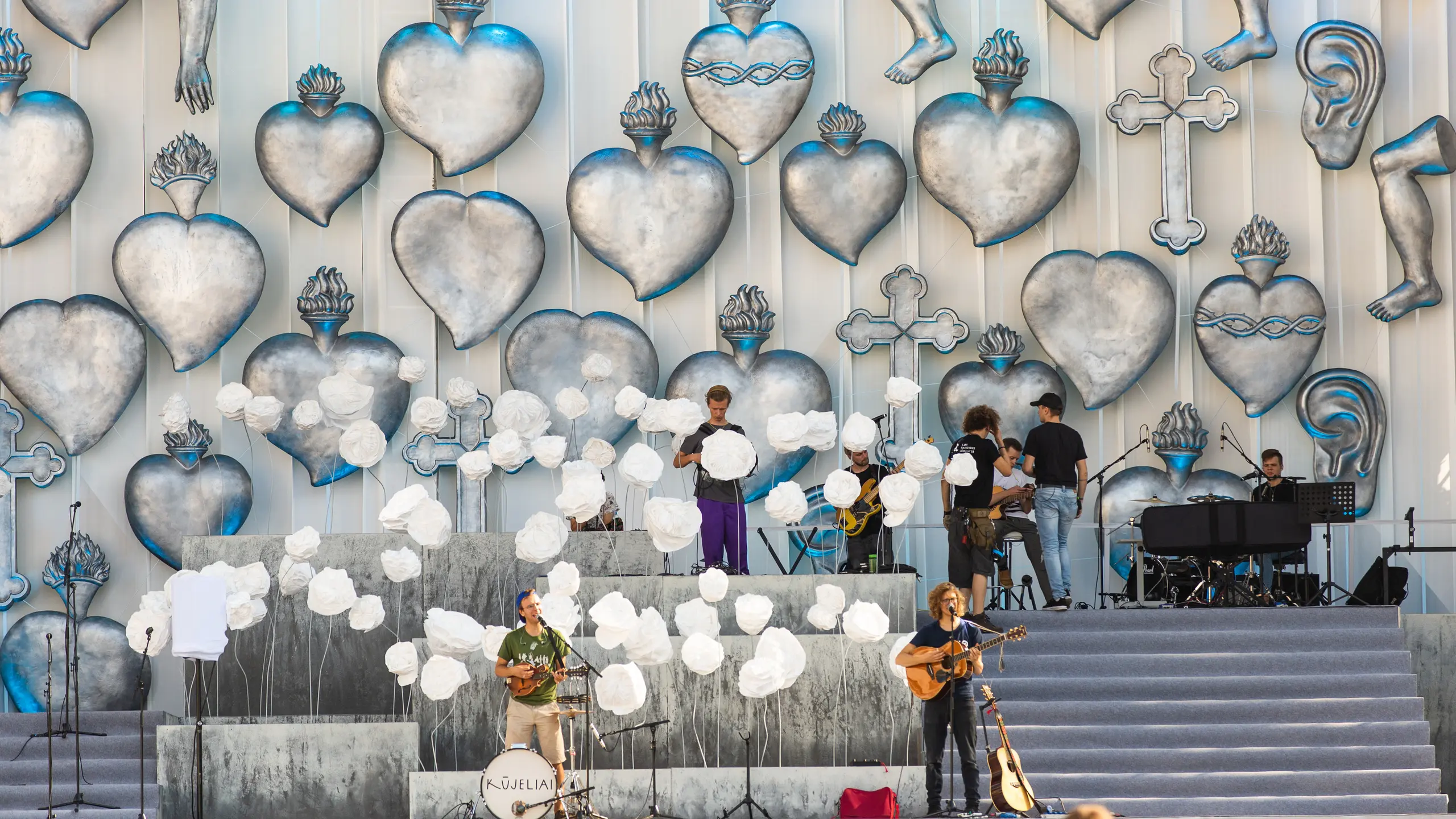 Photo by Laima Penek
Photo by Laima Penek